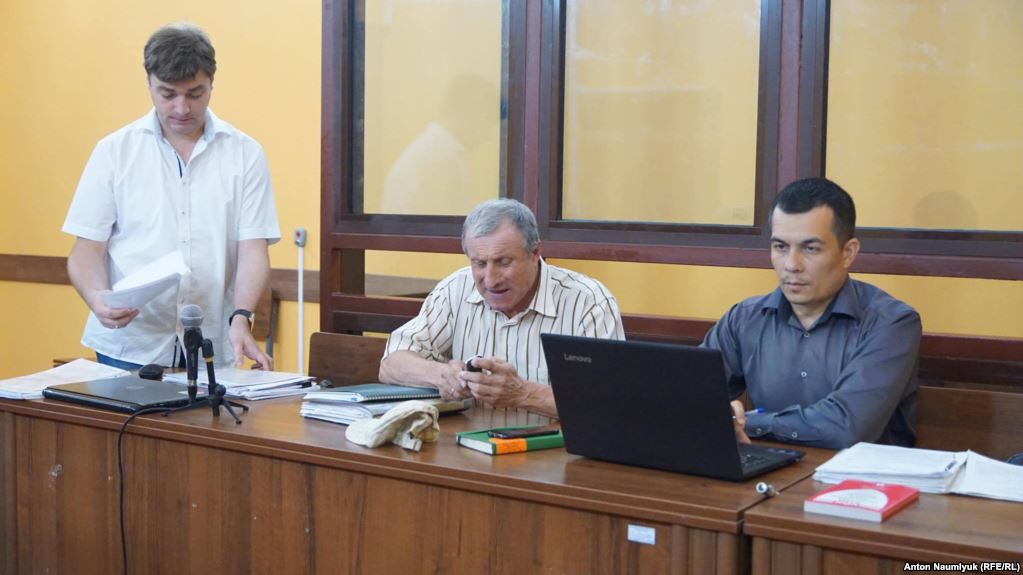Will Putin invade Eastern Ukraine? Difficult to tell. Many of us never expected him to invade Crimea, but he did. What next? Where to now? The flabby reaction of the EU and US to the faked poll in Crimea March 16 will certainly encourage Putin to continue raising the stakes. However, the number of troops deployed by Russia so far suggests that an invasion is implausible.
According to Ukrainian Defense Minister Tenyukh, 60,000 Russian troops have been deployed along Ukraine’s eastern border and another 22,000 in Crimea. While certainly able to invade Ukraine and occupy areas in Eastern and Southern Ukraine, 82,000 troops are hardly enough to conquer all of Ukraine or to garrison occupied areas.
In 1999, then-Prime Minister Vladimir Putin sent 80,000 Russian soldiers into Chechnya against a lightly armed, rag-tag army of 15,000 Chechens. Even though Russia had the numerical advantage, air supremacy, vast superiority in armor and artillery, and it proceeded with unbridled brutality, it took the Russian forces more than two years of ruthless and bloody fighting to conquer Chechnya—at the cost 11,000 Russian dead.
In peacetime, the Ukrainian Armed Forces consist of 90,000 troops. Recently 20,000 reservists and 20,000 volunteers have been called up bringing the Armed Forces to 130,000 men. Factoring in Border Guards and other armed state forces, Ukraine can field at least 10 times as many troops as Chechnya did. Ukraine also has large numbers of tanks, armored vehicles, artillery, air defense systems and attack helicopters, which means that a Russian invasion with current troop levels is a very risky gamble. Certainly, Russian troops could invade and occupy some eastern cities, but further advances with so few troops would require the Ukrainian Armed Forces to either surrender en masse or retreat without a fight. Judging by the steadfastness of the Ukrainian Forces in Crimea, neither of these two is likely.
Russia would also have to use a sizeable number of its forces to garrison any occupied territories: 82,000 men aren’t enough to both fight the Ukrainian Army and control occupied territories. The combined territories of Donetsk and Luhansk are already 20% larger than Chechnya and contain six times the population. Pushing further west would leave a huge unprotected area between Russian spearheads and Russia itself, territories in which Ukrainian partisan units would instantly spring up and harass Russian supply lines.
A good example is another major country that tried invading a small country with too few troops and too much optimism: with all its high tech gear, superior equipment and stellar training, the United States of America never got Iraq fully under control. Only when coalition forces and Iraqi security forces reached around 1.5 million men did the situation improve. Factoring in that Ukraine is a much more suitable country for partisan warfare, that it has 20 million more inhabitants than Iraq, and that the West would support, supply and train Ukrainian fighters, Russia would needs millions of men to keep a lid on Ukrainian resistance.
Assuming the Russian troop numbers announced by DM Tenyukh are correct, it is hard to foresee a scenario in which Russia invades Ukraine, beats the Ukrainian Army and garrisons the occupied territories successfully. The question is whether Putin is aware of the bad cards he is holding and only tries to bluff the new Ukrainian government into agreeing to his latest plan to destroy Ukraine politically: federalization, which would inevitably lead to a split of the country at a later time of his choosing.
But Putin already surprised many with his stealth invasion of Crimea. Only pessimists believed Putin would disregard all international agreements and violate the borders of a nation he only perennially called “brotherly“. This means that, even though the known numbers make it highly unlikely that Putin would send troops into mainland Ukraine, Ukraine must assume the worst and prepare for war, following an old maxim about Russian politics that has proven itself to be still very much correct even in our time: “When dealing with Russia, always expect the worst!”
Thomas Theiner is a writer and production manager. He has previously lived in Kyiv for 5 years and worked at a subsidiary of Ukraine’s biggest film company.






